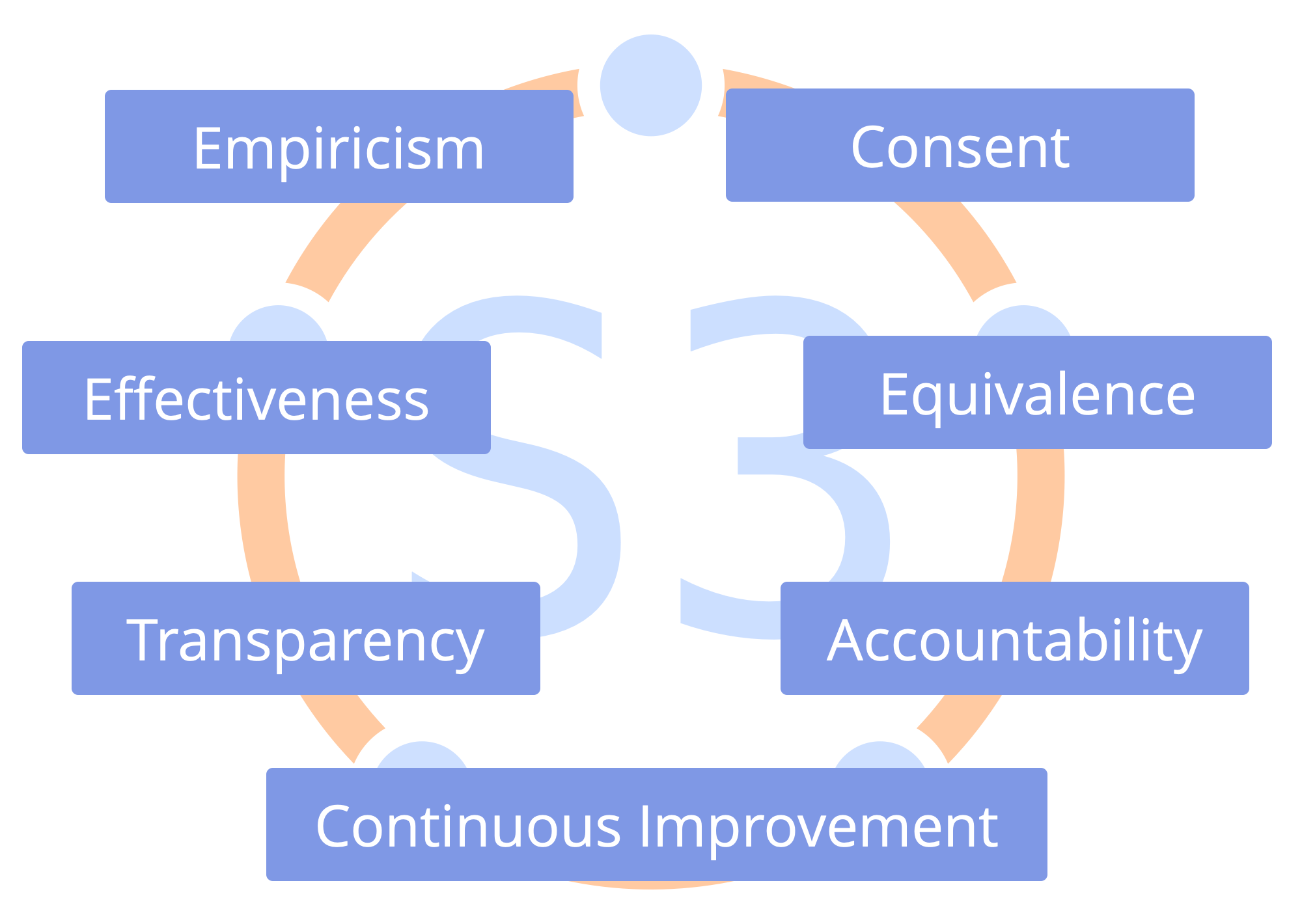Sociocracy is built on seven principles that shape organizational culture. Since the seven principles are reflected in all of the patterns, understanding these principles is helpful for adopting and paramount to adapting Sociocracy 3.0 patterns.
Practicing Sociocracy 3.0 helps people appreciate the essential value that these core principles bring – both to individuals and to organizations – and supports their integration into organizational culture.

The Principle of Effectiveness: Devote time only to what brings you closer toward achieving your objectives.
The Principle of Consent: Raise, seek out and resolve objections to decisions and actions.
The Principle of Empiricism: Test all assumptions you rely on, through experiments and continuous revision.
The Principle of Continuous Improvement: Change incrementally to accommodate steady empirical learning.
The Principle of Equivalence: Involve people in making and evolving decisions that affect them.
The Principle of Transparency: Record all information that is valuable for the organization, and make it accessible to everyone, unless there is a reason for confidentiality.
The Principle of Accountability: Respond when something is needed, do what you agreed to do, and take ownership for the course of the organization.
Read next: Introduction to the Patterns (or back to Why ‘Sociocracy 3.0’?)
© 2017 by Bernhard Bockelbrink, James Priest and Liliana David. Licensed under CC BY-SA 4.0